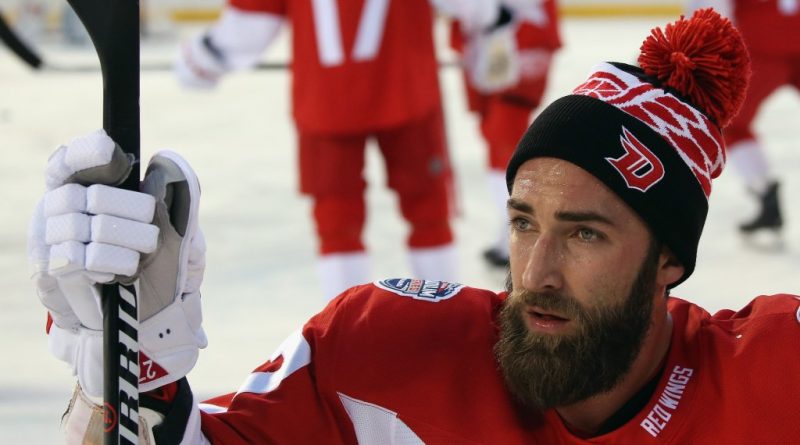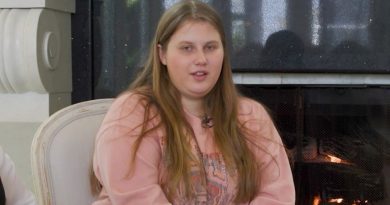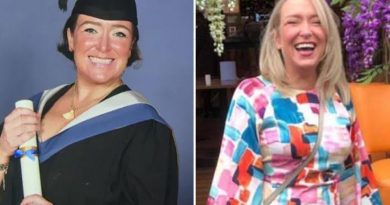NHL player Kyle Quincey to open psilocybin retreat center in Colorado
Hockey player Kyle Quincey began mentally preparing for retirement well before his career was over. The former defenseman, who spent three seasons with the Colorado Avalanche, knew it would be a tough transition since he’d seen others in the National Hockey League struggle to assimilate after dedicating their lives – and bodies – to the sport.
But soon after he hung up his jersey in 2019, at the age of 34, Quincey realized that nothing could have adequately equipped him for the emotional instability he experienced after leaving the locker room.
“I ended my career in Finland. I came home, I’ve had 20 concussions. I had massive mood swings, from pure euphoria to suicidal thoughts,” Quincey said during a panel at the 43rd Telluride Mushroom Festival in August. “On almost my year anniversary of retiring, my youngest son was diagnosed with brain cancer. And COVID hit the same week.”
The Quincey family spent months in hospitals as 1-year-old Axl underwent surgeries, radiation and chemotherapy. The little boy achieved remission, but the ordeal took a toll. Kyle Quincey felt isolated by the pandemic, especially without his teammates to act as a support network.
That’s when Daniel Carcillo, a former Chicago Blackhawks player and a known psychedelics advocate, introduced Quincey to “magic mushrooms.”
Quincey partook in a “ceremony” that not only profoundly impacted him personally, but also gave him a new purpose: To help others struggling with their mental health in hopes of saving lives. He’s now in the process of building a retreat center on Colorado’s Western Slope, called Do Good Ranch, where he aims to provide psilocybin therapy for individuals with traumatic brain injury (TBI), addiction, anxiety and depression, among other ailments.
“The mission there is to create a sanctuary and safe place for veterans, first responders, athletes and all warriors that are willing to do the work to heal themselves,” Quincey said during the panel.
Research into psilocybin, a psychoactive compound found in “magic mushrooms,” as a mental health tool is still young; however, during clinical trials, high doses of the substance have exhibited anti-depressant effects in individuals with treatment-resistant depression, end-of-life anxiety and existential distress. Small trials evaluating its potential to treat addiction have also yielded promising results.
Dr. Albert Garcia-Romeu, a researcher and assistant professor of psychiatry and behavioral sciences at Johns Hopkins University School of Medicine, said psilocybin is being studied in neurodegenerative disorders like Parkinson’s and Alzheimer’s Disease, but that those studies aim to measure its impact on depression and quality of life associated with the disease. In animals, psilocybin appears to promote neuroplasticity, or the formation of new neural connections, but it’s unclear how, if at all, that would translate to humans, he said.
The substance’s effect on TBI has not yet systematically been studied, Garcia-Romeu added. Anecdotally, people like Carcillo have touted a reduction in TBI symptoms after taking psilocybin.
Enthusiasm about its potential is so great that Colorado voters opted to legalize psilocybin-assisted therapy during last November’s election, setting the stage for so-called healing centers like Do Good Ranch to set up shop.
Shortly after witnessing the power of psychedelics first-hand, Quincey partnered with Jeremy Widmann, a Boulder-based biochemist and CBD purveyor, to purchase a property to be the future home of Do Good Ranch.
During the panel, Quincey offered few specifics about the retreat center, except that it’s currently under construction in Paonia in anticipation of Colorado’s legal industry rolling out in 2025. (Public records show it as being near Paonia, on about 280 acres in Crawford).
In an episode of “Life After Fame” podcast, which aired in 2022, Quincey said he was also growing functional mushrooms there for a company he invested in called Just Beat It, which sells supplements made with antioxidants, hemp and fungi like cordyceps.
However, the former sports pro’s aspirations to create a hub for “healing, education and community” were clear. The ranch’s mission dovetails with his work as vice president of the Colorado NHL Alumni Association, which supports military personnel’s transition out of service by inviting them to play hockey.
Quincey said Do Good Ranch in Colorado will be the blueprint for a model he hopes to bring to other states as they legalize psychedelic-assisted therapy. (So far, only Oregon and Colorado have done so.)
“If we can create a process with our team that we’re building and be able to replicate that all over the country, we can provide help for way more people,” he said. “Because there are millions of people who need this, and they need it in the right set and setting with the right team and the right intentions.”
Quincey said he’s already connected with several veterans organizations on this initiative, and that there are more similarities between ex-athletes and ex-military than one might think.
“All of us in these industries, it’s very high stress. We trained our bodies, we never trained our minds,” he said during the panel. “Right now, these guys have fought for our country, but cannot heal in our country. They have to go to Mexico, Peru, and Jamaica. It’s ridiculous. So we’re trying to be the answer to that.”
Sign up for our weekly newsletter to get health news sent straight to your inbox.
Source: Read Full Article




